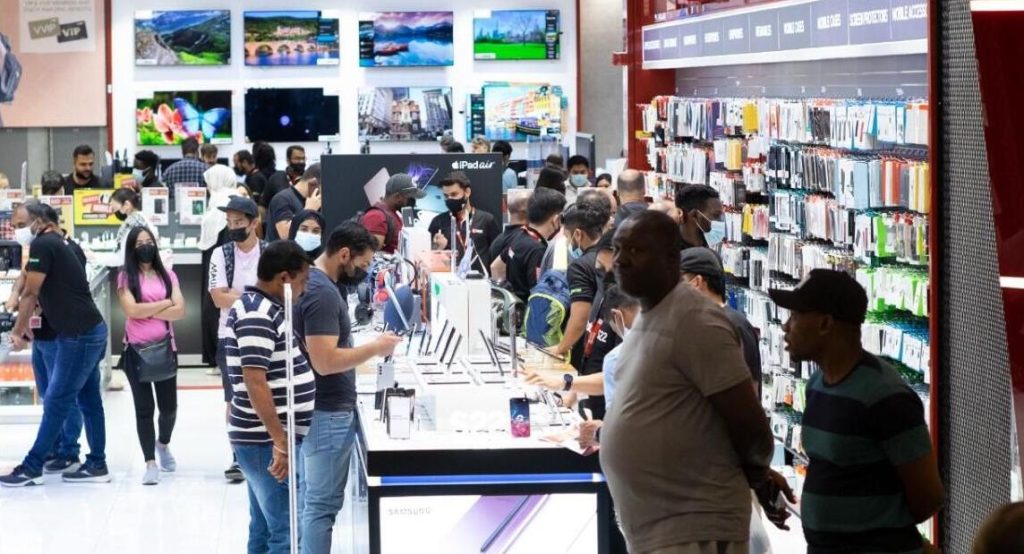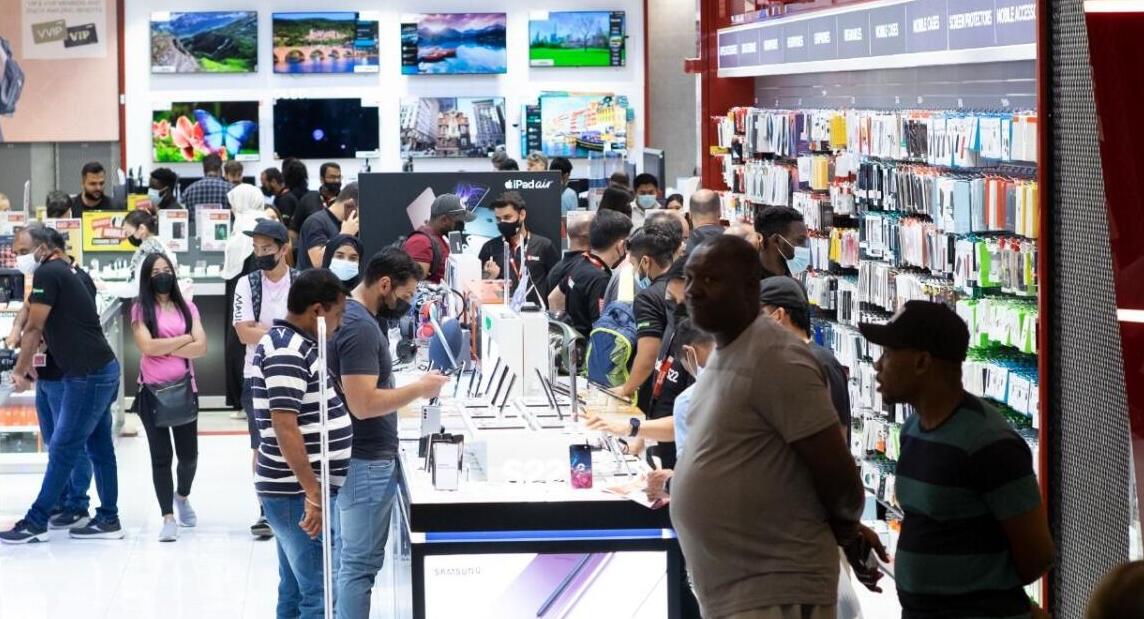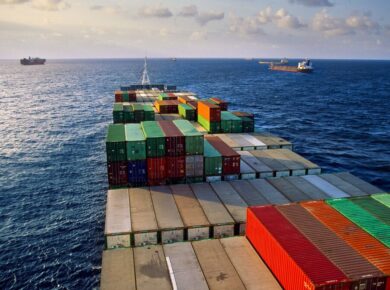The month of Ramadan is expected to increase sales of consumer goods in the United Arab Emirates.

As the holy month of Ramadan approaches, retailers and manufacturers in the United Arab Emirates (UAE) are gearing up for what is traditionally a busy period for consumer goods sales. The month-long religious observance is marked by fasting during daylight hours and an increased focus on family and community gatherings, which often translates into increased spending on food, beverages, and gifts.
According to industry experts, Ramadan is a key period for retailers in the UAE, with consumer spending expected to rise significantly. In recent years, Ramadan has become an important season for retailers, with many launching special promotions and discounts to attract shoppers. In fact, a survey conducted by YouGov in 2019 found that nearly three-quarters of UAE residents intended to spend more during Ramadan than during any other time of the year.
With the rise in consumer spending, retailers need to ensure that their stores are adequately stocked for this period. This means that they must plan and manage their inventory carefully to make sure they don’t run out of popular items. Additionally, it is important that businesses focus on creating a positive shopping experience for their customers during Ramadan.
One of the main drivers of consumer spending during Ramadan is the tradition of iftar, the evening meal that breaks the daily fast. Iftar is often a time for families and friends to gather and share a meal, and retailers and manufacturers typically see a surge in sales of food and beverage items in the lead-up to the evening meal.
This year, however, Ramadan may be different from previous years due to the ongoing COVID-19 pandemic. With restrictions on large gatherings and social distancing measures still in place, many families may choose to celebrate Ramadan in smaller groups or even alone. This could have an impact on sales of certain consumer goods, particularly those that are typically associated with communal celebrations.
Despite these challenges, retailers and manufacturers are still expecting strong sales during Ramadan, with many introducing new products and promotions to attract shoppers. In particular, e-commerce platforms are expected to see a surge in demand, as more consumers opt to shop online to avoid crowded stores and malls.
The increased focus on sustainability and social responsibility is also expected to be a key trend during Ramadan this year. Many consumers in the UAE are becoming increasingly conscious of the impact of their consumption habits on the environment, and are looking for more eco-friendly and sustainable options. This trend is likely to be reflected in the types of products that are popular during Ramadan, with a greater emphasis on organic and locally-sourced food and beverage items.
In addition, there is likely to be a greater emphasis on charitable giving and social responsibility during Ramadan this year. Many retailers and manufacturers are expected to launch initiatives and campaigns aimed at giving back to the community and supporting those in need. Ramadan is also a great time to review existing ethical and eco-friendly business practices, and make improvements where necessary.
By taking responsibility for the impact of our operations, businesses can demonstrate their commitment to sustainability and social awareness. Additionally, developing relationships with local organizations that specialize in providing assistance to those in need can help ensure that our efforts are making a tangible difference in people’s lives.
Overall, Ramadan is expected to provide a much-needed boost to the consumer goods industry in the UAE, which has been impacted by the COVID-19 pandemic. With retailers and manufacturers adopting new strategies and initiatives to attract shoppers, and with consumers eager to celebrate the holy month in a meaningful way, the stage is set for a successful and rewarding Ramadan season.
Read More about what's happening this Ramadan






Jmguad
ivermectin 3mg for humans – atacand 8mg price cheap carbamazepine 200mg
January 3, 2025Ujupxd
order isotretinoin 20mg online – accutane cost buy linezolid 600mg generic
January 14, 2025Qzksrj
amoxicillin brand – amoxicillin for sale how to get combivent without a prescription
January 15, 2025Ghhnce
azithromycin 500mg over the counter – buy azithromycin 500mg online bystolic for sale
January 27, 2025Brnage
order omnacortil 5mg generic – omnacortil 20mg oral buy progesterone 200mg pill
January 30, 2025Hchfxi
buy neurontin online – neurontin 100mg us buy itraconazole 100mg for sale
February 8, 2025Imdbrf
furosemide 100mg oral – furosemide 100mg generic betamethasone cost
February 8, 2025Llaaej
order generic monodox – glucotrol 10mg without prescription buy glucotrol generic
February 13, 2025Zzwspp
buy augmentin 625mg pills – nizoral 200mg tablet duloxetine 40mg cheap
February 14, 2025Hsuxad
amoxiclav ca – purchase amoxiclav without prescription purchase duloxetine without prescription
February 21, 2025Ruzvto
rybelsus price – semaglutide 14 mg ca cyproheptadine uk
February 23, 2025Fkxhyl
cialis 5mg cost – sildenafil 100mg sale sildenafil over the counter
March 4, 2025Fzfzii
purchase viagra online cheap – buy cialis 20mg pill tadalafil 5mg brand
March 4, 2025Kyovbs
cenforce pills – brand metformin order glucophage 500mg pill
March 11, 2025Dclzgz
cheap lipitor 80mg – norvasc over the counter order zestril 10mg generic
March 13, 2025Ykyrdw
buy omeprazole 10mg pills – order prilosec 10mg sale atenolol 50mg sale
March 20, 2025Fyvzth
methylprednisolone 4mg online – methylprednisolone 8mg over counter buy aristocort sale
March 26, 2025Kzzdfb
cheap desloratadine – buy generic dapoxetine for sale buy generic dapoxetine
March 27, 2025Rorzcv
cytotec sale – order xenical 120mg generic diltiazem uk
March 30, 2025Gemwxq
buy zovirax 800mg pill – zyloprim 300mg brand buy rosuvastatin without prescription
April 4, 2025Dkcmdp
purchase motilium for sale – flexeril for sale online cyclobenzaprine 15mg canada
April 7, 2025Blpayz
buy motilium – where to buy domperidone without a prescription buy flexeril pill
April 14, 2025Sflgvx
buy inderal without prescription – generic plavix methotrexate 2.5mg cost
April 15, 2025Fnfrlp
buy coumadin 5mg online – order warfarin 5mg for sale buy generic cozaar
April 19, 2025Ubszrz
buy levaquin 250mg pill – purchase levaquin online order ranitidine 300mg pill
April 23, 2025Mpuebb
buy nexium no prescription – buy topamax generic imitrex 25mg sale
April 23, 2025Parxqn
mobic 7.5mg price – brand tamsulosin 0.4mg tamsulosin 0.2mg brand
April 29, 2025Nydjeb
buy ondansetron 4mg pills – buy zocor without prescription zocor 20mg drug
May 16, 2025